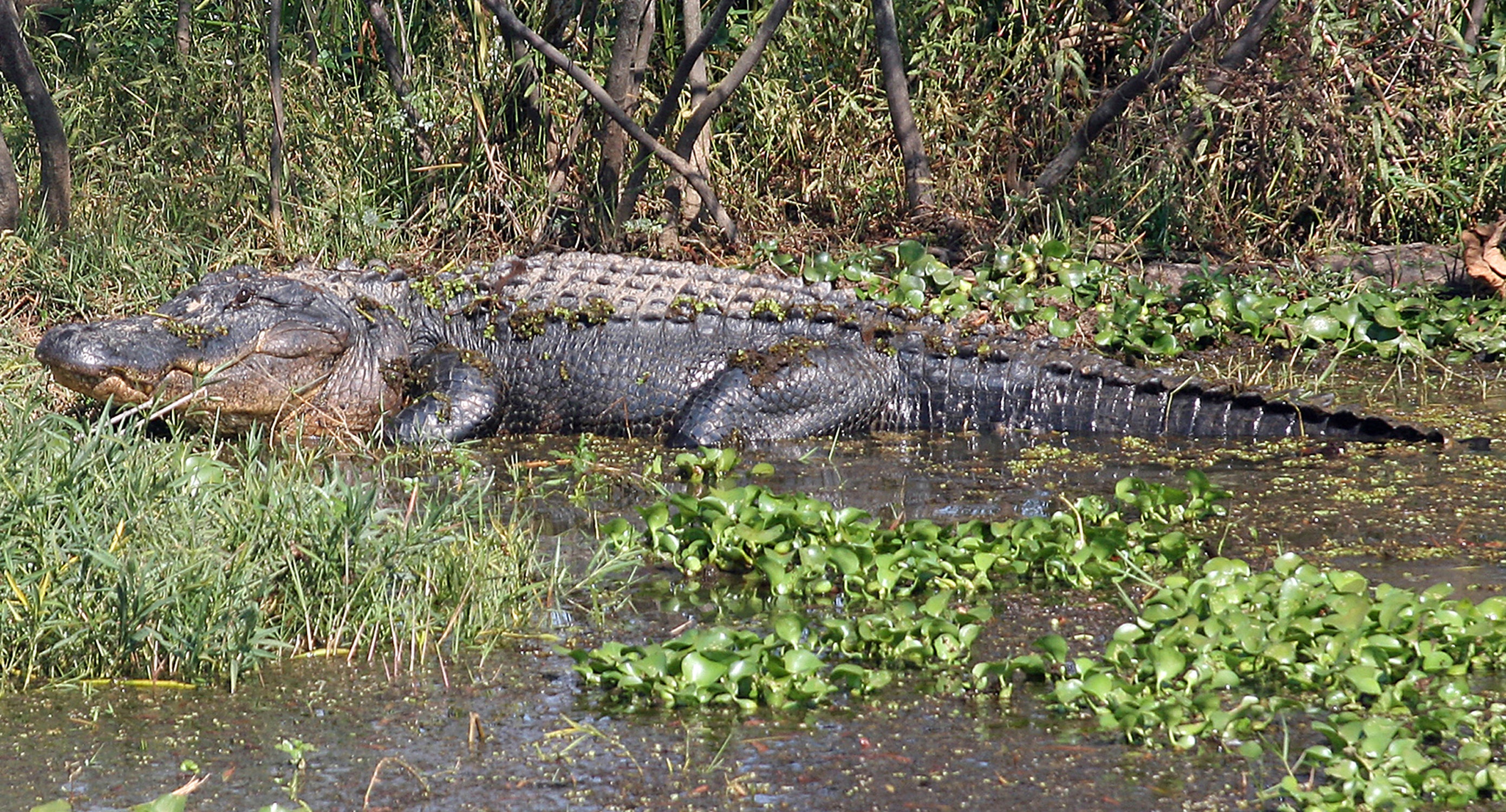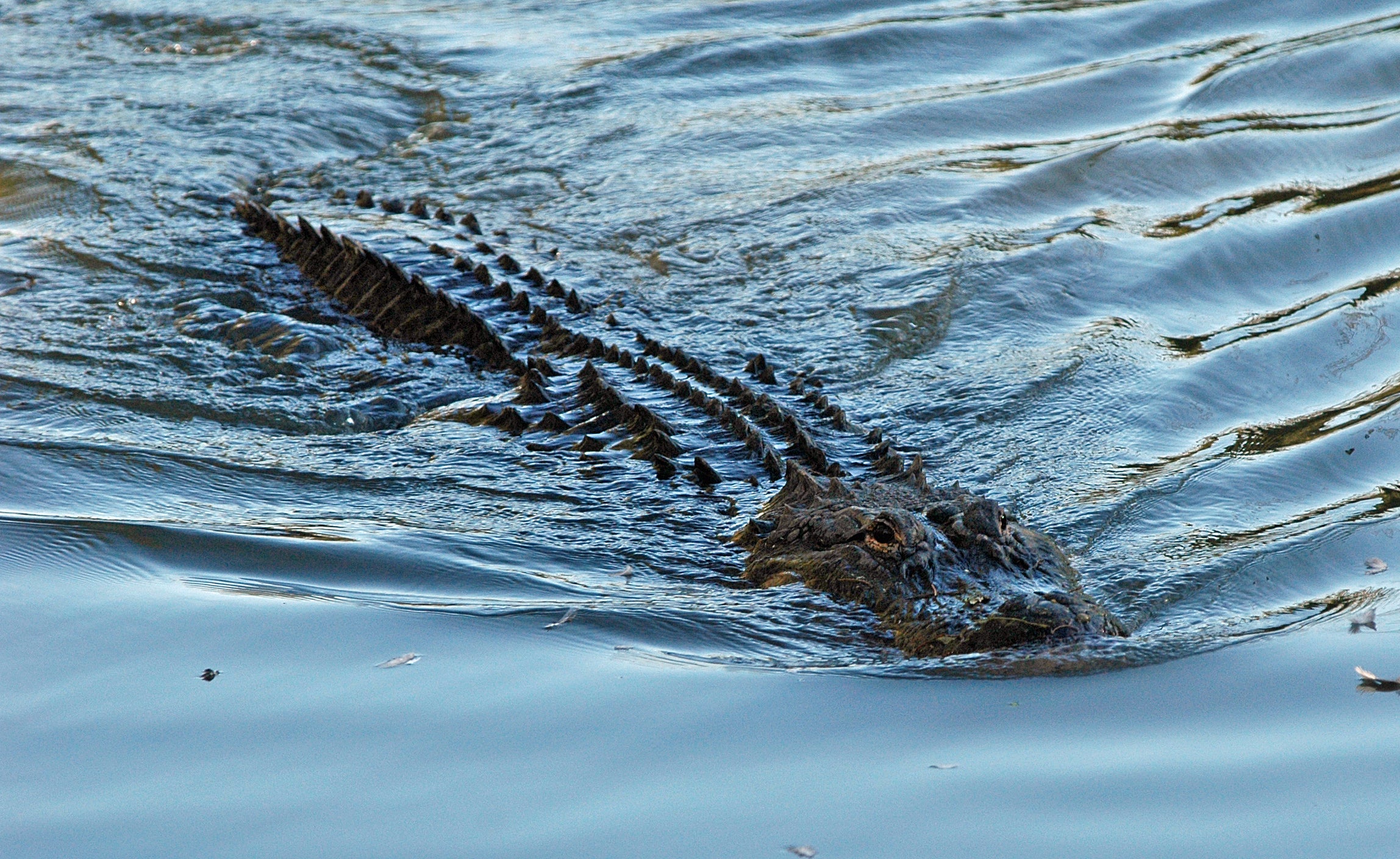By DAVID RAINER, Alabama Department of Conservation and Natural Resources
Two significant changes are in store for those fortunate enough to be selected for a tag in the random drawing for the 2019 Alabama alligator season.
The Alabama Wildlife and Freshwater Fisheries (WFF) Division has created a new Coastal Zone and shifted the mandatory alligator hunting training workshop to online only.
“We went from mandatory in-person training to mandatory online training,” said Chris Nix, WFF’s Alligator Program Coordinator. “We did this to try to cut out an obstacle for people to participate. It was always a problem with several people each year, whether it was weddings or vacations or other obligations. It was especially hard on people coming from Birmingham or Huntsville to make the trip all the way to the coast for one class. And, we had just one class per zone each year, so hopefully this will be better.
“I think people that took the in-person training got a lot of really good information and it was effective.”
Registration for the alligator hunts is currently open at www.outdooralabama.com/alligators/alligator-hunt-registration. All entries must be received by 8 a.m. on July 10 to be considered for the random drawing in the five zones.
After the registration period ends, applicants can go to that same online page to check their status. If selected as a hunter or an alternative, a link to the mandatory online training video will be available.
“Those people who are drawn have seven days to complete the online training,” Nix said. “Once the online training is completed, then they can accept their status. The training is in five segments with questions to answer at the end of each segment. It will probably take most people less than 30 minutes to complete the online training.”
Nix said when the first alligator season was sanctioned in 2006, it covered only the southernmost portion of the Mobile-Tensaw Delta from the Causeway (Battleship Parkway) to the CSX railroad to the north. In the years since, the boundaries for the Southwest Zone have been expanded to include all of Mobile and Baldwin counties and private and public waters in Washington, Clarke and Monroe counties that lie east of U.S. Highway 43 and south of U.S. Highway 84.
Nix urged tag holders for several years to try the prime alligator hunting available south of I-10 in Baldwin and Mobile counties, but few gators have been taken in those areas.
The creation of the Coastal Zone with 50 tags for all territory below I-10 in the two coastal counties will target that underutilized population.
“That’s where we get 95 percent of our nuisance alligator complaints,” Nix said. “That’s where everybody lives, but there are also a lot of alligators down there. We would much rather hunters take those alligators out instead of us. Historically, we have averaged less than 5% of the harvest from the area south of the interstate.”
The 50 tags for the Coastal Zone will reduce the number of tags for the rest of the Southwest Zone to 100. Nix said 96 gators were harvested in the whole Southwest Zone last season.
“The Coastal Zone will include the private and public waters in Baldwin and Mobile counties that lie south of I-10,” Nix said. “Any body of water in the two coastal counties will likely have alligators. There are some really good alligators down there, and they’re not hunted at all.”
The Coastal Zone will have the same rules as the Southwest Zone and will utilize the same check station at the WFF’s office on the Causeway at 30571 Five Rivers Blvd., Spanish Fort, AL 36527.








